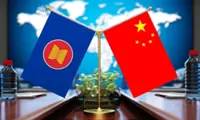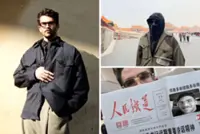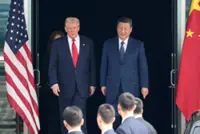SHANGHAI: Sipping champagne and nibbling fried dumplings, Shanghai's rich and influential posed by Louis Vuitton signs at a runway afterparty -- a lavish affair designed to win customers in China's crucial market.
China is the world's biggest spender in the luxury sector, accounting for half of global sales. But as its post-pandemic recovery falters, consumption has flagged, sending jitters through the industry.





